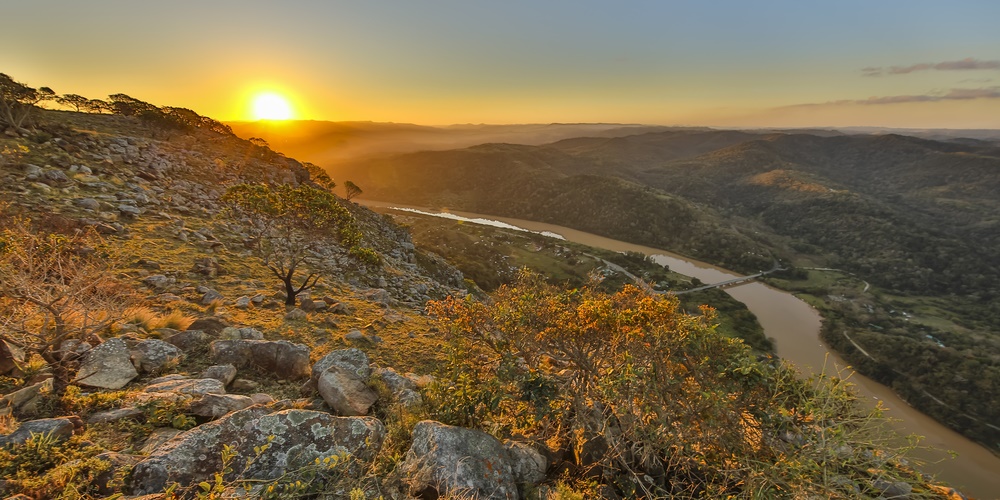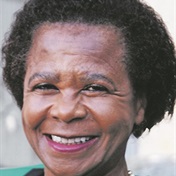
We dare not continue to postpone mounting an aggressive campaign to tackle the multiple challenges we face. Orthodox economic models are clearly inappropriate to address the unemployment crisis, writes Mamphela Ramphele.
A veritable forest fire in the form of youth unemployment has set our country ablaze. The latest statistics show that youth unemployment stands at 56%.
Nature has lessons for us about dealing with fires. Many plants show adaptations for coping with fire: some types of grass store most of their biomass underground, while some pine trees can survive intense heat by shooting out new buds to reproduce themselves. This is nature's way of surviving through regeneration.
We need to learn this same instinct to survive this current man-made disaster in our labour market. Neglect and corruption have conspired to undermine young people's futures.
The irony is that as we celebrate Women's Month, many women are bearing the brunt of the destabilising impact of the frustration and rage amongst young unemployed people across the country. High levels and brutality of gender-based violence continue to mark us as the worst performing country in the world.
Women, especially grandmothers, in poor rural communities have become targets of their grandsons and their friends' violent demands of a share of old-age pensions and child grants under their care. We cannot effectively empower women while continuing to exclude young men from productive activities in our society.
SABC news last week reported the tragic events in the Lusikisiki district in the Eastern Cape where anger among unemployed young men is increasingly directed at women. A significant number of women are being labelled witches, some of whom have been killed brutally and their homesteads burnt down. Those implicated in these crimes are unemployed young men, many of whom are related to the affected women.
Women throughout history have tended to bear the brunt of societal anxieties and insecurities. Relatively successful or non-conformist women have often been labelled witches for daring to stand out as resilient in the face of pressures that men buckle under. At the height of the struggle for freedom in the 1980s, the persecution of such women led to the establishment of a special village in Limpopo – a "witches' village" to provide refuge for them.
Scientists have been increasingly paying attention to lessons from nature. For example, there is growing recognition of the value of enhancing intergenerational talents and regenerative capacities to ensure stability and sustainability of ecosystems. The study of tropical forests shows that older trees (older than 150 years) create openings in their canopies to enable new growth to emerge and bend their trunks to maximise the co-existence of multiple species of various ages.
Imagine the opportunities that would open up if we were to adopt an ecosystem approach to socio-economic development to leverage the diversity of talents, energy levels and wisdom across generations and cultures! Our society's multiple crises: poverty, inequality, unemployment, as well as climate change, heavy air pollution from burning fossil fuel, could be better addressed by learning from nature to adopt an ecosystem approach.
Imagine how we could transform the Eastern Cape's landscapes scarred by the migrant labour system, broken families, denuded hills and dongas left behind by soil erosion, by promoting ground up socio-economic restoration programs. Restoration of these landscapes of rolling hills could be coupled with income-generating forms of production through enriching pastures with trees, harvesting forest-based products and growing cash crops beneath forest canopies. This ecosystem approach would transform the land of low value for agricultural production into sustainably managed landscapes where trees are flourishing and animal and birdlife thrive and forests lost are restored.
Ethiopia is showing us the way. Last week, Prime Minister Abiy Ahmed led a reforestation campaign, the Green Legacy, that resulted in 350 million trees being planted in 12 hours! The previous world record in tree planting was held by India with 50 million trees in one day. Ethiopia's Green Legacy complements its strong agricultural revival led by women turning Ethiopia into a more food secure and prosperous country.
What stops us doing the same across our country? We could leverage the huge energy and creativity of young people who are currently excluded from socio-economic development efforts into engines of development. The 31% of unemployed graduates among the larger pool could be trained to become horticulturalists to lead land restoration, tree planting and maintenance, food security and agro-processing initiatives across the country.
We have much more financial, technical and scientific resources than Ethiopia. We dare not continue to postpone mounting an aggressive campaign to tackle the multiple challenges we face. Orthodox economic models are inappropriate to tackle our complex problems. Foreign investment is not the binding constraint we have been made to believe it to be. Utilising the resources we have more effectively to unleash the talents and potential of all citizens, especially the significant segment of our youthful population, would enlarge our resource base to create a more sustainable ecosystem.
Imagine if we were to harness youthful creative energy in urban renewal and greening of all human settlements. Simply employing the millions of young people in every geographic area to manage and transform waste into wealth, would transform our towns, cities and villages. The shame and tragedy of pollution of our rivers carrying the precious and scarce water resources could be turned into opportunities for sustainable employment in reforestation, efficient water and sanitation systems.
We have the science and technology in our well-developed research community, especially concentrated in the Water Research Council and the CSIR, to skill local professionals and unemployed young people to become agents of proper management of water and sanitation systems. Our government needs to more strategically utilise the science and technological base it invests significant resources in to help guide socio-economic development and effectively address complex social problems.
We can do no better than learn from nature and the wisdom of ancient forests. Intergenerational conversations, collaboration across gender and cultures would make ours a healthier ecosystem with a better chance of promoting sustainable prosperity for all.
- Mamphela Ramphele is co-founder of ReimagineSA.
Disclaimer: News24 encourages freedom of speech and the expression of diverse views. The views of columnists published on News24 are therefore their own and do not necessarily represent the views of News24.




 Publications
Publications
 Partners
Partners






















